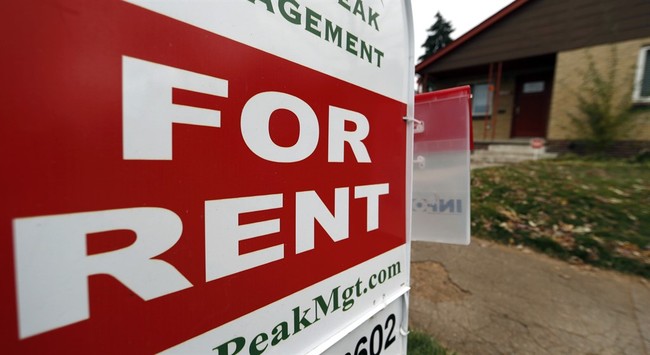
Unless you live in Washington, DC, you may never heard of ERAP. That’s the Emergency Rental Assistance Program, providing $43 million annually to subsidize the rent payments of residents. It’s a popular program, particularly given the sky-high cost of rent in the capital and the high unemployment rates. But its popularity is likely the biggest problem with it. You see, ERAP is a first-come-first-served program that people apply for using an online form. And the demand is so high that there isn’t nearly enough money to keep accepting new applicants. They open the website for new applications every three months. When they opened it on October 1 last year, they were flooded with applications and by October 10 the fund was broke and they had to close it again. (dcist)
The need for rental assistance in the city is high. D.C.’s Emergency Rental Assistance Program (ERAP) reopened on Oct. 1 after closing in March due to the volume of applications. But by Oct. 10, the program closed again, due to high demand, according to an announcement on the portal. ERAP will reopen for new applications on Jan. 1, 2024.
ERAP assists low-income residents who are facing eviction or other housing emergencies, with the program either paying the household’s back rent or providing money to help them move into a new apartment. The program ballooned during the pandemic, as many District residents unable to work relied on it to stay housed.
For the past several years, ERAP has run out of funding long before the end of the fiscal year on Sept. 30. While the program is supposed to be available year-round, an influx of requests last year drained the budget and led to officials cutting off further applications after only five months.
Last October, the site wasn’t even available for the full ten days prior to shutting down again. The site was down on October 4th and 5th. On the 6th, visitors were greeted by an announcement that the site was “temporarily down for maintenance.” So in reality, ERAP was only available to take applications for six or seven days.
This entire program was designed in a flawed fashion from the ground up. When you set up an assistance program that is essentially distributing “free money” to the public, people will obviously show up in hoards. But such assistance programs are supposed to be equally available to all who qualify. They shouldn’t be based on the luck of the draw and who is fortunate enough to type in a URL on the chance that the system might be functioning. If the demand is too great for the amount of funding available, the only logical solution would be to increase the requirements to qualify. Lower the maximum income level until a sufficiently small number of people are able to qualify and then distribute the funds accordingly. The only alternative would be to lower the payments being given out or increase the funding for the program. (An increase has been requested but the city can’t afford it.)
It’s not as if the problem is going to go away on its own. According to NPR, as of last year, more than half of DC residents were spending at least 50% of their income on housing costs, primarily rent.
A growing share of renter households in D.C. are spending more than half of their income on housing costs, according to a new analysis of U.S. Census Bureau data.
A report published Tuesday by the United Planning Organization, a social services and advocacy group, shows that more than 44,000 households were “severely housing cost burdened” last year, meaning that they spent at least half of their income on rent.
That’s an increase from the roughly 36,000 households that reported the same in 2010.
ERAP was poorly designed, insufficiently funded, and incompetently executed. It’s also yet another symbol of the government creating situations where citizens are increasingly relying on it for their basic survival. But the government shouldn’t be making promises that it can’t keep. As things stand, there are many people facing eviction or already out on the streets while they see some of their neighbors remaining secure. And the only reason is because they weren’t among those lucky enough to find a popular website being functional. It’s simply not fair.
